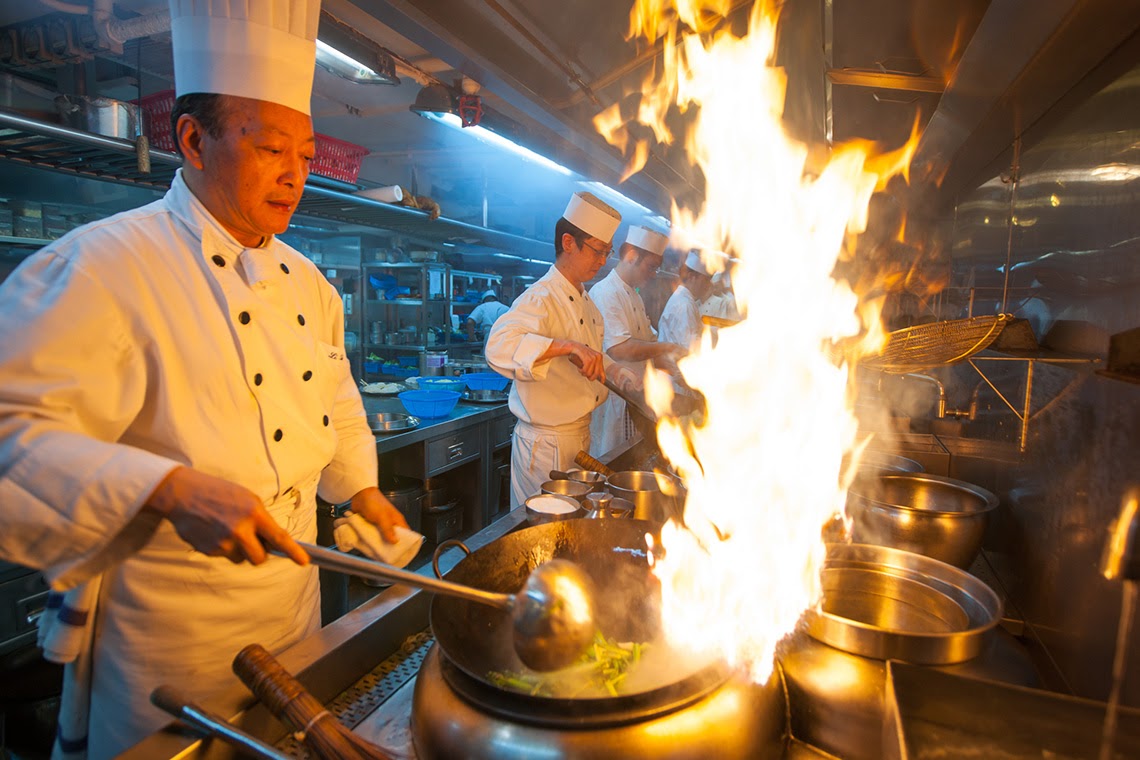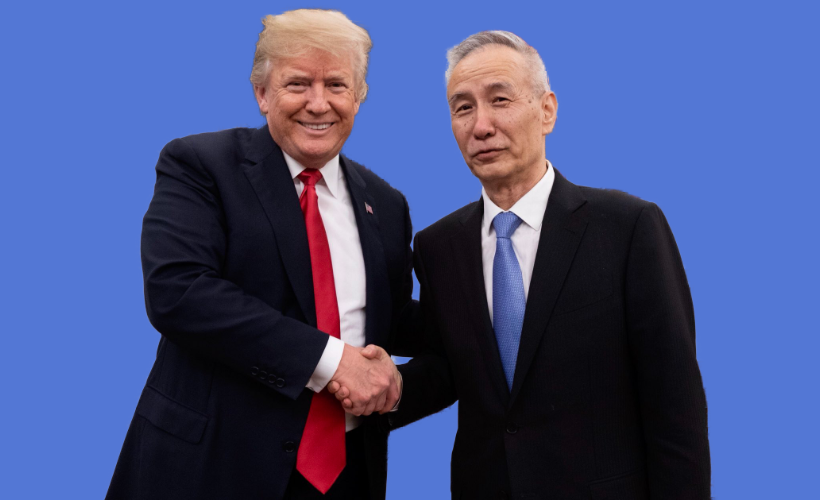A skeptical smile from China’s “economic brain”


Hello Access members!
Announcements for Access members:
-
We will have a video recording of our Women’s Conference uploaded soon, and make it available to all of you. Thank you to those of you who joined us in New York or on livestream!
-
Look out for more Slack expert Q&As coming your way. Now that we’ve over the conference bump, we’re looking at a variety of ways to give you as much value as possible for your membership. As a reminder, the Slack channel can be found at supchina.slack.com, and Slack has a handy app that can give you push notifications for when there’s chatter on the Access channel.
-
Listen to early-access Sinica Podcasts by plugging this link directly into your podcast reader.
As always, we love feedback: jeremy@thechinaproject.com goes only to my inbox, or you can contact our whole editorial team by emailing editors@thechinaproject.com.
—Jeremy Goldkorn, Editor-in-Chief

1. A skeptical smile from China’s “economic brain”
Trump tweeted the photo above (the unedited version, of course) with the description: “Talking trade with the Vice Premier of the People’s Republic of China, Liu He.” Liu He 刘鹤 is a close adviser to Xi Jinping and sometimes described as the “brain” behind China’s economic policy.
As the skeptical smile on Liu’s face might indicate, there has apparently been no substantial progress made. Here is a roundup of relevant news and smoke signals:
-
Sorghum probe canceled: Reuters reports that “China dropped its anti-dumping probe into imports of U.S. sorghum on Friday, beating a hasty retreat from a dispute that wreaked chaos across the global grain market and raised concerns about rising costs and financial damage at home.” The article calls the move “a goodwill concession.” More than 90 percent of the imported sorghum in China comes from the U.S. Last year the trade was around a billion dollars.
-
$200 billion “rumor” denied: “China earlier denied assertions from U.S. officials on Thursday night that Beijing had offered a package of concessions and goods purchases aimed at reducing the U.S. trade deficit with China by as much as $200 billion,” according to Reuters.
-
Even if the $200 billion offer was real, and China “stopped buying other foreign products, like Airbus airplanes from the European Union or soybeans from Brazil, and purchased solely American products, it would add up to only a small fraction of the $200 billion total they are promising to purchase,” according to the New York Times (paywall). Chad Bown, a senior fellow at the Peterson Institute for International Economics, told the Times that it “would even be a stretch to get it to $50 billion.”
-
China can’t cut its trade gap by $200 billion, says Bloomberg opinion columnist David Fickling: “There’s no way to make the math add up here.”
-
Trump set expectations low for trade talks: The Associated Press reports remarks the U.S. president made yesterday: “Will that be successful? I tend to doubt it. The reason I doubt it is because China has become very spoiled. The European Union has become very spoiled.”
-
American stock markets did not like Trump’s comments: “The Dow lost 54 points, while the S&P 500 and Nasdaq declined 0.1 percent and 0.2 percent, respectively,” according to CNBC.
-
On the other hand, the “Qualcomm/NXP deal is looking more optimistic now,” according to a Beijing official quoted by the Wall Street Journal (paywall). The deal for the American mobile tech titan Qualcomm to buy Dutch chipmaker NXP Semiconductors has been approved by eight of the nine required global regulators, with only the Chinese Ministry of Commerce stalling the takeover. Shares of both companies ticked up after the Wall Street Journal report was published, according to Reuters.
-
Trump trade adviser Peter “Death by China” Navarro had a shouting match with one of his more moderate colleagues during trade negotiations in Beijing, we noted yesterday.
—Jeremy Goldkorn and Lucas Niewenhuis

2. ‘Relationship expert’ says Chinese comfort women prove gender superiority
Yang Bingyang 杨冰阳, or Ayawawa, is a Chinese “relationship expert” with a lucrative business built by preaching her questionable yet popular dating theories to about three million fans. Guyu Lab, an online media outlet operated by Tencent, published an article (in Chinese) that was widely circulated today, profiling the self-acclaimed “goddess of dating” and her loyal followers.
One quote from Yang in the article has drawn fire on the Chinese internet: In one of her classes, she attempted to explain why women are born with more “gender advantages” than men. She said that that Chinese “comfort women” who were forced to provide sex services to the Imperial Japanese Army during World War II were probably not unhappy, and that while many men died in the war, these women survived.
For more on Ayawawa and the viral article, please click through to The China Project.
—Jiayun Feng
3. Cleaning up dirty trucks carrying coal
“The Ministry of Ecology and Environment has been considering a rule that coal must be transported on the country’s mostly electrified rail network by the end of September, banning the use of diesel-fueled trucks to make shipments,” according to Caixin (paywall).
This make a lot of sense to me: I spent many weekends driving around northern China in the last decade, and I’ve probably shortened my life by a few years by breathing exhaust from the filthy, badly maintained trucks hauling coal.
—Jeremy Goldkorn
4. Good news for spicy hotpot lovers
Haidilao 海底捞 is one of China’s most popular Sichuan hotpot restaurant chains, famous for excellent service as well as good food. The South China Morning Post says that “brokers expect the company, founded by former welder and tractor factory worker Zhang Yong 张勇 to seek to raise between US$600 million and US$700 million” in an initial public offering (IPO) in Hong Kong.
Haidilao currently has 296 restaurants in Mainland China, and 24 outlets in Taiwan, Hong Kong, Singapore, Tokyo, Seoul and Los Angeles. The SCMP says the the IPO’s proceeds “are likely to be used to fund another 180 to 220 new restaurants this year, including more in the US.”
A message to Zhang Yong: 纳什维尔 nà shí wéi ěr needs you!
—Jeremy Goldkorn
—–
Our whole team really appreciates your support as Access members. Please chat with us on our Slack channel or contact me anytime at jeremy@thechinaproject.com.
—Jeremy Goldkorn, Editor-in-Chief
-
Sexual misconduct among foreign correspondents
Sexpat journalists are ruining Asia coverage / Foreign Policy (paywall)
AFP correspondent Joanna Chiu writes about how “the behavior of foreign men working abroad has, in my experience, been far worse than anything I ever experienced at home.” -
Censorship
Popular ‘rage comics’ brand gagged for making fun of martyrs / Sixth Tone
“China’s leading ‘rage comics’ brand, Baozou Manhua, has been silenced on multiple online platforms after one of its videos was accused of slandering revolutionary heroes and martyrs.” Baozou (暴走 bàozǒu) means “go berserk”; manhua (漫画 mànhuà) means “comics” or “manga” in Japanese. Baozou’s own website is down, but Google has cached it. -
Lenovo in limbo
Patriotic storm trips up Lenovo / Caixin (paywall)
“The founder of Lenovo Group Ltd. has pushed back against accusations that the Chinese personal-computer giant was ‘unpatriotic’ because it did not support homegrown wireless technology at an industry group meeting in 2016.”
China’s tech luminaries back Lenovo amid public backlash / Sixth Tone
Lenovo founder in public backlash for ‘unpatriotic 5G standards vote’ / TechNode -
Suppression of intellectuals
Chinese legal maverick, facing political gales, bides his time / NYT (paywall)
He Weifang 贺卫方 “may be China’s best known law professor; he is also, in many ways, persona non grata in his country.” -
China in Africa
China’s just another great power in Africa / East Asia Forum
Noted scholar of China-Africa relations David Shinn writes, “While China’s tactics and perhaps even strategy are novel, it is just another major power pursuing its own interests — much as the United States, France and the United Kingdom are doing.” -
Vatican-Beijing-Taiwan politicking
Vatican, Beijing deadlocked on appointment of bishops, senior Taiwanese clergyman says / SCMP
“Archbishop John Hung Shan-chuan, who recently returned from an eight-day trip to Rome, said also that the Holy See would maintain ties with Taiwan no matter the outcome of its talks with Beijing.” -
Cracking down on activists in Hong Kong
Hong Kong localist Edward Leung convicted of rioting over Mong Kok unrest / HKFP
“A nine-person jury has unanimously found localist Edward Leung guilty of rioting over his participation in the 2016 Mong Kok unrest, but not guilty of inciting a riot. He faces up to a decade behind bars.” -
How do you solve a problem like Kim Jong-un?
China denies Trump’s view that Xi could be influencing N. Korea / Yonhap
A foreign ministry spokesperson “dismissed U.S. President Trump’s assertion Friday that President Xi Jinping might be behind North Korea’s sudden shift to a recalcitrant attitude.” -
Debt in Inner Mongolia
China local govt firm fails to repay $629 mln loans in rare default – sources / Reuters
“The rare loan default highlights growing funding strains on Chinese local governments as Beijing cracks down on riskier types of financing and rising debt, which some outside agencies have warned could lead to a banking crisis.” -
Politics of language
China is becoming more tolerant of some regional Han languages / Economist (paywall)
“Party leaders appear to believe that China’s cultural ‘soft power,’ including local language, can be used to persuade members of the global Chinese diaspora to support policies that are favorable to the party, and even to win over people in Taiwan.” If you are a language nerd and think the difference between topolect and dialect is important, you’ll enjoy the linguist group blog Language Log, and Phonemica, a collection of recorded stories in local Chinese vernaculars. -
Espionage case of Jerry Chun Shing Lee
Ex-CIA officer accused of spying for China pleads not guilty / CNN
“A former CIA officer who is believed to have helped China identify and kill members of the US spy network in the country pleaded not guilty Friday in a Virginia federal court on charges of conspiracy to commit espionage and unlawful retention of classified information.” -
Sexual harassment in California
China calls for investigation into abuse allegations at University of Southern California / Reuters
“The Chinese government has expressed ‘deep concern’ over published reports that a University of Southern California gynaecologist was allowed for years to treat students, many of them from China, despite accusations of sexual abuse and harassment.” Sixth Tone has a good roundup of Chinese student reactions to the news. -
Beijing bank offers access to Trump
Construction Bank offers clients a dinner date with Donald Trump for $150,000 a ticket / Bloomberg -
Merkel in Beijing next week
Germany’s Merkel to visit China May 24-25: spokeswoman / Reuters
China looks to Merkel visit to boost ‘mutual trust’ amid global trade concerns / Reuters -
Public shaming of people in debt
Coming to a cinema near you – Chinese debtors ‘reel of shame’ / SCMP -
Craft beer
Rise of Chinese middle class fuels interest in craft beers / AP
Here are the stories that caught our eye this week:
-
A system of “re-education” camps for Muslims in Xinjiang Province was revealed in greater detail than ever before. There may be hundreds of thousands of people being detained and brainwashed, based on eyewitness reports and analyses of the size of the detention centers.
-
The Chinese stock market could soon welcome $40 billion in new inflows, following the inclusion of 234 Chinese shares in the MSCI Emerging Markets Index that was announced to begin on June 1, 2018. However, the stocks will only be folded in at a partial inclusion factor of 2.5 percent, with plans for 5 percent inclusion by September 3.
-
The LGBT community was shown some love at high schools and colleges across China, as students celebrated International Day Against Homophobia, Transphobia, and Biphobia (IDAHOT). A high school in Beijing promoted LGBT awareness with a T-shirt campaign, and LGBT events sprung up at multiple campuses across the country. However, also this week, two women at an LGBT event in Beijing’s 798 Art District were beaten up by security guards.
-
Donald Trump’s company was set to profit from $500 million in Chinese government loans that had reportedly been secured by Indonesian billionaire Hary Tanoesoedibjo for a real estate development and theme park that had licensed Trump’s name. Tanoesoedibjo soon denied that the loans had been signed, despite earlier telling local media that they were guaranteed.
VIDEO OF THE DAY
 OneSpace becomes first private Chinese company to launch payload-carrying rocket
OneSpace becomes first private Chinese company to launch payload-carrying rocket
In the fast-moving world of Chinese space startups, another record was set this week: OneSpace became the first private Chinese company to launch a rocket with a payload — the OS-X Chongqing Liangjiang Star. But another startup, i-Space, was the first to launch a non-payloaded rocket, last month in Hainan.
ON SUPCHINA
‘Africa Week’ in Beijing aims to dismantle Africa-China clichés
Africa Week is a nine-day program in Beijing featuring panel discussions, digital art, dance performances, Ramadan-friendly African cuisine, and more. The organizers’ goal is to instill nuance into public perception and conversations about Africa and China, and to encourage mutual understanding.
China Sports Column: China’s Olympic hockey dreams shaken after ‘embarrassing’ national tournament
The International Ice Hockey Federation unanimously voted to allow both the Chinese men’s and women’s teams to automatically qualify for the 2022 Olympic tournament as hosts — though this may be a curse in disguise. Also in this week’s China Sports Column: Buick LPGA Shanghai was announced as a new LPGA event, likely meaning the end (for now) of Alisports’ LPGA ambitions.
The second annual The China Project Women’s Conference
This Monday, we had an amazing day of inspiration and women’s empowerment here in New York. Check out highlights of the event on TheChinaProject.com, on our Instagram story, and on Twitter at #SupChinaWomen.
Winners of the 2018 The China Project Female Rising Stars Award
Learn more about the two exceptional women chosen for the The China Project Female Rising Stars Award! They are Cindy Mi 米雯娟, founder and CEO of VIPKID, and Ingrid Yin, co-founder and portfolio manager of MayTech Global Investments.
‘Avengers: Infinity War’ scores second-biggest opening in China box office history
‘Avengers: Infinity War’ scored a record-breaking opening weekend in China. The superhero film raked in $200 million (1.26 billion yuan) in the world’s second-largest market, far surpassing the opening performances of other Marvel movies. It is also currently the highest-rated Marvel film on Douban, with a score of 8.5.
Chinese government says no to ‘mobile theaters’
About 85 percent of China’s population has never set foot in a movie theater because of the scarcity of theaters in China’s poorer, rural regions.
Mingbai: Know your sports stars: The most famous female athletes in China
In China, it’s women who dominate the sports scene. Many female athletes have become household names, winning the hearts of the public not only with their strength, skill, and speed, but also with their stories and personal quirks. Mingbai zooms in on past and present female sports legends known by everyone in China.
Kuora: One simple lesson the U.S. can learn from China
In this week’s column, Kaiser Kuo answers the question “What, if anything, can American policymakers learn from China about how to maintain social cohesion amidst high socioeconomic inequality?”
TechBuzz China: Has Tencent Lost Its Mojo?
On this episode of TechBuzz China: The debate on Tencent’s dreams, following a #fakenews scandal. Featuring Hans Tung of GGV Capital on the future of Tencent.
-
Subscribe to TechBuzz China on Apple Podcasts, Overcast, or Stitcher, or click here for the RSS feed.
Sinica Podcast: China’s international relations, with Jiang Changjian, Ira Kasoff, and Anthony Saich
How much has China’s foreign policy changed since the Deng Xiaoping days of “concealing strengths, biding time” (韬光养晦 tāoguāng yǎnghuì), and how much of that change is due to Xi Jinping? The ever-popular topic is discussed in this Sinica Podcast episode with Jiang Changjian, Ira Kasoff, and Anthony Saich.
-
Subscribe to the Sinica Podcast via Apple Podcasts, Overcast, or Stitcher, or plug the RSS feed into your favorite podcast app.
The Caixin-Sinica Business Brief, episode 47
This week on the Caixin-Sinica Business Brief: A two-day meeting between Xi Jinping and Kim Jong-un, the fall of Sun Zhengcai 孙政才, Chinese short-video platform Douyin 抖音, Doug Young on domestic smartphone sales in Q1, and more.
-
Subscribe to the Business Brief on Apple Podcasts, Overcast, or Stitcher.
Video:
-
A video showing “Princess” Der Ling from the Qing dynasty making a speech in fluent English went viral on the Chinese internet.
-
A Sichuan Airlines aircraft made an emergency landing after a windshield suddenly shattered while the plane was en route from the southern city of Chongqing to Lhasa, Tibet, on Monday, causing a co-pilot to be sucked halfway out the window.
-
A video showing a Chinese makeup artist transforming herself into the Mona Lisa has gone viral on the Chinese internet.
PHOTO FROM MICHAEL YAMASHITA

Heating up the kitchen
Chefs prepare dishes for guests at a Hong Kong hotel. There is never a lack of amazing chefs in China: Watch this video to check out some incredible cooking skills!
—Jia Guo










